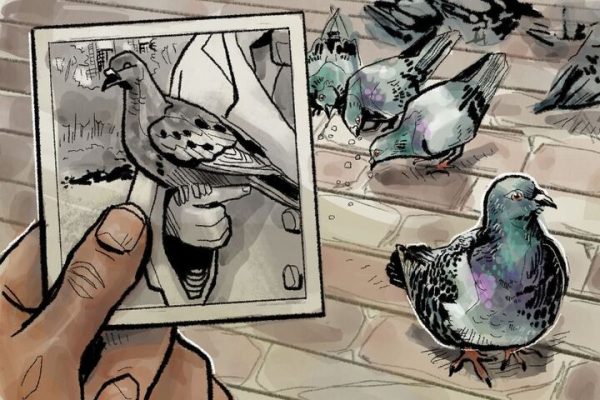Response: Concerning free expression and a bulletproof vest

In response to the new concealed carry campus policy at Kansas public universities, one professor at the University of Kansas is taking an extra measure to ensure he’s protected.
Kevin Willmott, a professor and film director, is teaching his college courses in a bulletproof vest.
His political statement encourages students not to forget the policy of keeping guns hidden and unseen, or “out of sight and thus out of mind” as Willmott said of the policy in guest commentary published in The Kansas City Star.
Willmott anticipates that handguns and ammunition have already become a student essential, much like a notebook, laptop and a backpack. “We cannot ask and they cannot tell,” he wrote, sharing his displeasure with the covert nature of the policy.
“Try to forget I’m wearing a bulletproof vest and I’ll try to forget that you could be packing a .44 Magnum,” Willmott said to his class at the start of the semester. His statement is a fair expression, but will this yearlong stint he has planned be enough to get the point across?
Willmott has called out “the leadership in Topeka” because they “decided to encourage young people to secretly carry firearms on campus.” He said he hopes his actions and statements will discourage young, unlicensed individuals from discreetly carrying on campus. If Willmott wears the bulletproof vest though, isn’t he encouraging students to challenge his vest?
His image and mirroring statements mark a larger discussion than the policy warrants. Each class period Willmott continues to wear the vest, he risks giving more attention to the policy than it otherwise would have carried — but that’s the route he’s chosen to take. For some students, concealed carry is out of sight and, therefore, it’s likely out of their minds. Willmott faces the risk of perpetuating the issue when he starts the conversation on concealed carry through silent protest.
Willmott and others say we shouldn’t let the conversation on concealed carry die out and remain “out of sight, out of mind,” but their methods of disagreement challenge us to think solely on guns and less on the heart of the issue — freedom of expression.
Willmott is not the first Kansas professor to publicly disagree with the new policy. Others too have taken action, elevating the concealed carry conversation.
Deborah Ballard-Reisch, a tenured communication’s professor in the Elliott School of Communication at Wichita State, resigned on July 1 — the day the policy went into effect.
In her resignation letter to WSU President John Bardo, Ballard-Reisch wrote, “Clear, open, critical discussion cannot take place in an environment of threat and fear.”
“I can’t tell them (my students) that they are safe to claim their voices, their truths, when someone next to them, who might have a different view, may also have a gun.”
Ballard-Reisch is no longer with the university. She and like-minded individuals across the state fear a setting where free expression might be challenged. Open-minded conversations in a polarizing political climate could riddle a tragic episode for a classroom or professor.
Her reasoning for excusing herself from the university, which was fueled partly by a home invasion in 2014 in which Ballard-Reisch and her son were pressured by gunpoint, is justified. If someone fears a policy or cannot come to terms with the regulations of their employment, rightfully, they shouldn’t sit in silence.
With or without guns in the classrooms, we have freedom of expression. You and I, in spite of our fears, have to take the risk of having diplomatic, open-minded conversations here in classrooms at WSU. It is our responsibility as students and educators. We as an institution cannot grow otherwise.
Be willing to accept differences, risk disagreements and be open to free classroom expression.

Evan Pflugradt is the former sports editor of The Sunflower. Pflugradt past served as the publication's Editor in Chief, Opinion Editor and a reporter....








